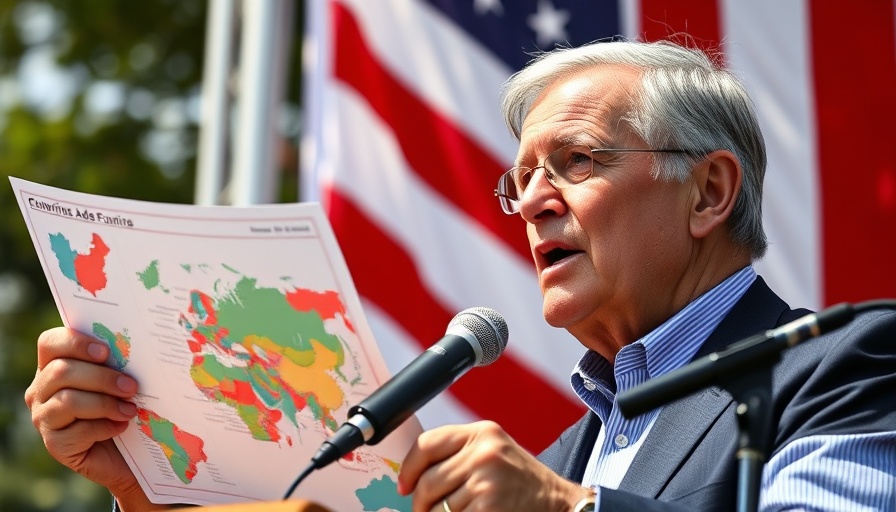
Understanding the Impact of ‘Liberation Day’
Many had high hopes for what Donald Trump referred to as 'Liberation Day,' but as the dust settles, the economic repercussions reveal a stark reality. The day was marked not by freedom but an aggressive shift in trade policy that, according to economic experts like Scott Lincicome, may constitute one of the worst economic decisions of our time. Trump's new executive order, laden with reciprocal tariffs, has raised alarm among economists about its potential fallout on the U.S. economy.
A Closer Look at the Tariffs
In his announcement, Trump presented a slew of new tariffs that will hit major trading partners. However, these tariffs, described as 'secret calculations' with no clear relationship to actual trade barriers, stand to impose significant financial burdens on American consumers. This lack of transparency has led to increased volatility in the markets, with immediate effects on currencies paired against the dollar, particularly Canadian dollars, and S&P futures taking a dive from uncertainty.
The Broad Economic Consequences
The consequences of these tariffs reach beyond immediate market shifts. Economists warn that such a move could exacerbate the very trade issues it purports to address. Each of Trump's tariffs disregards existing trade agreements, undermining the trust and stability in agreements that have taken years to establish. This could embolden adversaries while simultaneously weakening the U.S. economy, particularly in sectors such as manufacturing, which relies heavily on global supply chains.
Unpacking National Emergencies and Trade Deficits
The justification of a 'national emergency' as a basis for these tariffs echoes a misunderstanding of economic principles. Trade deficits, often misconceived, do not solely reflect negative economic performance; rather, they can be indicative of strong domestic demand. Yet, the imposition of tariffs as a remedy risks dismantling beneficial trade relationships, potentially reining in the economic growth the administration insists is thriving.
The broad Consensus: Uncertainty Looms
The uncertainty surrounding these policies is considerable. With Trump’s unpredictable leadership style, assessments of his economic policies must remain provisional. As markets react dramatically to each new pronouncement, the lack of clarity on trade regulations begins to stifle investment and economic planning, leaving businesses — and consumers — in a precarious position.
Navigating Future Implications
For those earning top wages in Philadelphia, understanding the implications of these tariffs is vital. Economic stability often hinges on trade. A shift toward protectionism not only threatens to raise costs but could lead to a squeeze on wages if businesses are forced to cut costs, reflecting the rising expenses they face. Engaging with advocacy groups and making informed decisions at the ballot box may be critical as the landscape shifts further.
Conclusion: The Need for Engagement
Just as we must adapt to changes in the economic landscape, there is an urgent need for civic engagement. Understanding the nuances of economic policy is essential for all, especially those in high-income brackets, who have more at stake in the changing environment. Participating in discussions, attending town halls, and staying informed on economic policies can empower individuals to advocate for impactful change.
 Add Row
Add Row  Add
Add 




Write A Comment